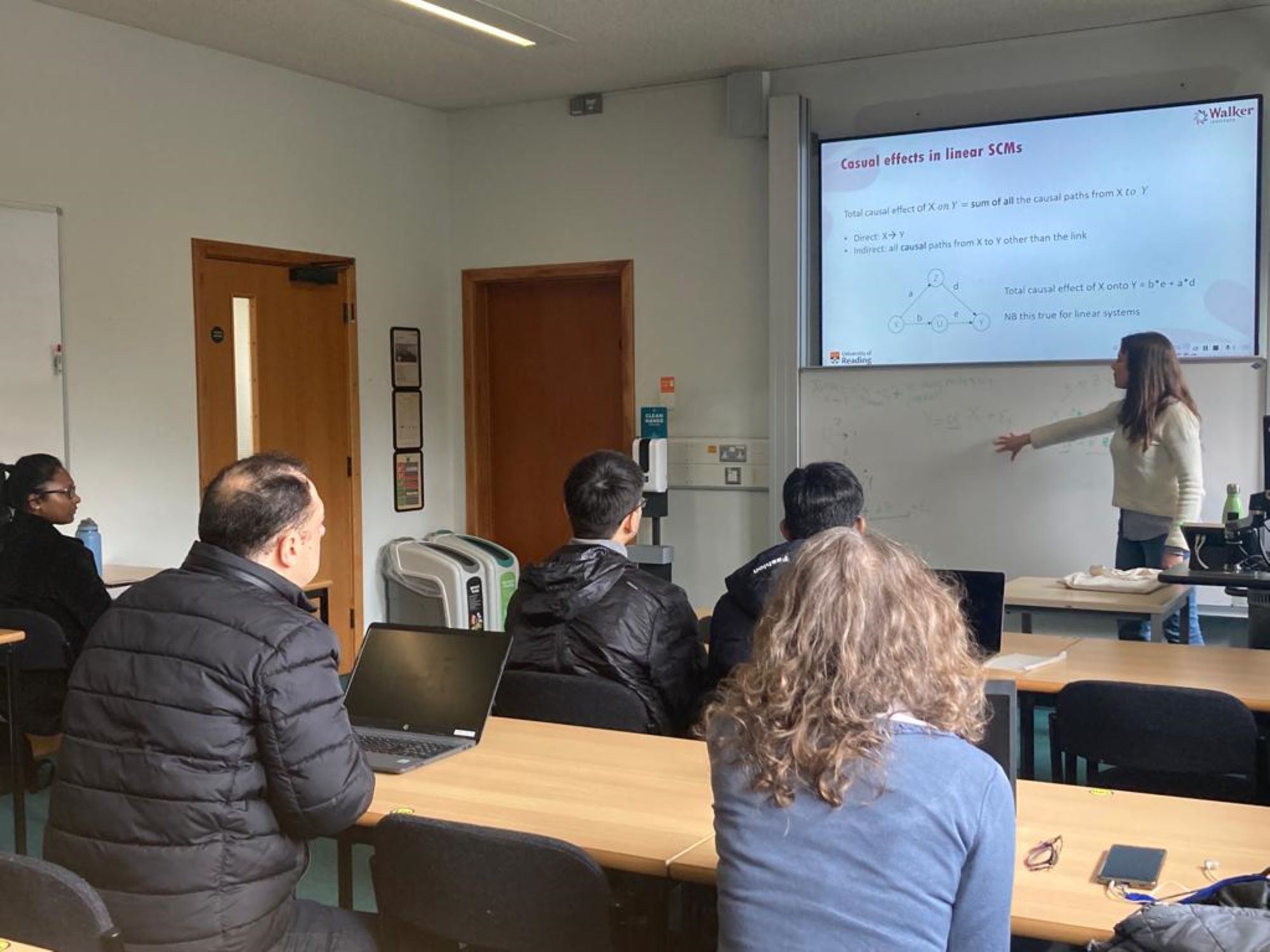MSc Climate Change and Artificial Intelligence
In 2022, the University of Reading launched a new MSc in Climate Change and Artificial Intelligence. This innovative MSc seeks to address the growing demand for individuals with understanding of both our changing climate and artificial intelligence, together with the business acumen to deploy that understanding effectively.
The Walker Institute is delivering two of the spring term modules.
Causal Inference and Decision-Making (CIDM) introduces students to the theory of causal networks and their innovative applications for climate adaptation decision-making. Through real-world case studies, the difference between correlation and causation will be explored, key aspects of deterministic and probabilistic reasoning will be presented, and causal inference will be applied to demonstrate its use in climate risk modelling and decision-making.
The goal of the module is to help students develop critical reasoning skills with the support of causal inference tools, and to apply this to practical decision-making situations. Students will also learn how to incorporate different types of data (climate, environmental, socio-economic) and sources of data (expert interviews) to produce effective models of climate risk.

Climate Change: Values, Ethics and Justice (CC:VEJ) explores climate change, and responses to it, through the lenses of political ecology and justice, while also drawing connections to climate change and AI. Students will also interview a range of informants from Walker Institute’s wider network, to better understand how they address climate change and integrate aspects of climate justice in their work.
The module is designed to help students gain experience engaging in critical discussion of other people’s ideas and arguments. They will participate in group work, thereby fostering communication skills and peer-to-peer learning techniques. Furthermore, epistemology (theories of knowledge, its validity, and its scope) is central to this module, which emphasizes that there are many different “ways of knowing”; therefore, students will have the opportunity to develop creative outputs such as artwork, drama, and visual media, among others. Students will also develop good academic social science practice by conducting a literature review and developing a bibliography for their essay, in which they will use citations and references to support their arguments.


